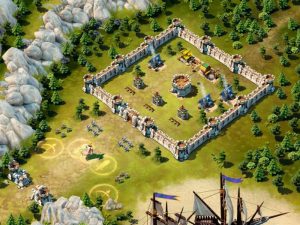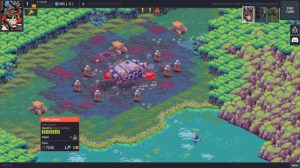
The allure of daily rewards and challenges has become a cornerstone of online adventure games, captivating players and keeping them engaged for extended periods. These features, often intertwined with the game’s narrative and gameplay mechanics, are carefully designed to create a sense of accomplishment and progress, fostering a desire to return day after day. By leveraging psychological principles like reinforcement and gamification, developers have successfully incorporated these elements into their games, creating a compelling and rewarding experience for players.
The effectiveness of daily rewards and challenges stems from their ability to provide a sense of tangible progress and accomplishment. Players are motivated to complete daily tasks, knowing that they will be rewarded for their efforts. This constant feedback loop keeps players engaged and encourages them to continue playing, even when they might otherwise be tempted to take a break.
The design and implementation of these features are crucial, as they need to be balanced to avoid player frustration or burnout while maintaining a sense of challenge and reward.
The Allure of Daily Rewards and Challenges

Daily rewards and challenges are powerful tools for enhancing player engagement in online adventure games. These features provide a constant sense of accomplishment and motivation, keeping players coming back day after day. They tap into the psychological principles of reinforcement and gamification, making the gaming experience more rewarding and addictive.
The Psychology of Daily Rewards and Challenges
Daily rewards and challenges work by leveraging the principles of reinforcement and gamification. Reinforcement, a key concept in behavioral psychology, suggests that actions followed by positive consequences are more likely to be repeated. In the context of online adventure games, daily rewards act as positive reinforcement, encouraging players to log in regularly. The anticipation of receiving rewards, even if small, motivates players to engage with the game on a daily basis.
Gamification, the application of game mechanics to non-game contexts, enhances the experience by introducing elements of competition, progress, and achievement. Daily challenges provide players with a sense of purpose and accomplishment, fostering a competitive spirit and driving them to strive for improvement. The satisfaction of completing a challenge, regardless of its difficulty, reinforces positive behaviors and encourages players to keep playing.
Successful Implementations of Daily Rewards and Challenges
Many successful online adventure games have effectively implemented daily rewards and challenges to boost player engagement.
- Clash of Clans offers daily rewards for players who log in, including resources, gold, and elixir. These rewards encourage players to check in daily, even if they don’t have time for a full gaming session.
- Candy Crush Saga features daily challenges, such as completing a specific level within a limited number of moves. These challenges provide players with a sense of accomplishment and encourage them to return to the game each day to see if they can improve their performance.
- Pokémon GO incorporates daily rewards for catching Pokémon, spinning PokéStops, and completing raids. These rewards motivate players to actively engage with the game, encouraging them to explore their surroundings and participate in the community.
Design Considerations for Daily Rewards and Challenges

Designing effective daily rewards and challenges requires careful consideration of various factors to ensure player engagement and long-term satisfaction. By thoughtfully integrating rewards and challenges, developers can create a compelling experience that motivates players to return daily and progress through the game.
Reward/Challenge Types and Design Considerations
Daily rewards and challenges can be categorized into different types, each requiring unique design considerations. The following table Artikels key factors to consider for each type, along with illustrative examples and their potential impact on player experience.
| Reward/Challenge Type | Design Considerations | Examples | Potential Impact |
|---|---|---|---|
| Login Bonuses |
|
|
|
| Daily Quests |
|
|
|
| Daily Challenges |
|
|
|
| Limited-Time Events |
|
|
|
Daily rewards and challenges have proven to be a powerful tool for engaging players in online adventure games. By strategically incorporating these features, developers can create a compelling and rewarding experience that keeps players coming back for more. As technology continues to evolve, we can expect to see even more innovative and immersive ways to implement daily rewards and challenges, further enhancing the player experience and pushing the boundaries of online adventure games.
FAQ Resource
What are the most common types of daily rewards?
Common daily rewards include in-game currency, experience points, consumable items, and special equipment. These rewards are designed to provide players with a sense of progress and reward them for their daily engagement.
How do daily challenges contribute to player progression?
Daily challenges often require players to complete specific tasks, such as defeating a certain number of enemies or collecting specific items. Completing these challenges rewards players with experience points, in-game currency, or other valuable items, helping them progress through the game.
What are some examples of games that have successfully implemented daily rewards and challenges?
Popular examples include “Clash of Clans,” “Candy Crush Saga,” and “Pokémon GO.” These games effectively use daily rewards and challenges to keep players engaged and motivated to return each day.




